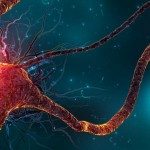Présentation
Abstract:
There is increasing evidence that Substance Use Disorders stem from loss of control over maladaptive drug seeking habits. The psychological and neural basis of the maladaptive nature of these drug seeking habits remains unknown.
The incentive habit hypothesis of addiction suggests that incentive habits, which are instrumental habits that develop under the motivational influence of the conditioned reinforcing properties of drug-paired cues, contribute to the persistence of drug seeking in the face of negative consequences and the high tendency to relapse that jointly characterise Substance Use Disorders.
In longitudinal studies in rats, we used a combination of refined self-administration procedures, causal manipulations of the corticostriatal circuits, such as functional disconnections or pathway specific manipulations of the brain in rats seeking drugs, in vivo extracellular electrophysiological recordings and molecular biology to identify the neural and psychological basis of these incentive habits.
We further demonstrated that incentive habits result in the aberrant engagement of excessive drug seeking behaviour despite past or future negative consequences, or following abstinence.
During this talk I will present this novel psychobiological model of addiction and discuss its neural and cellular substrates.
I will particularly focus on the notion that once incentive habits have developed, as a result of prolonged exposure to drug seeking under conditioned reinforcement, there is a shift in the goal of this persistent drug seeking from the drug to the response itself.

